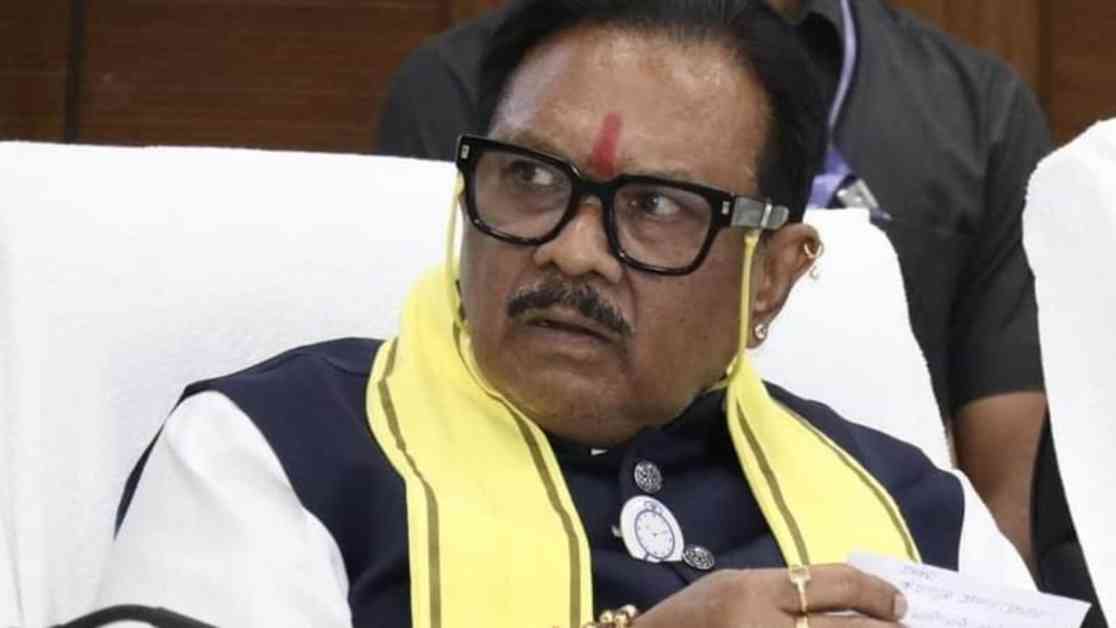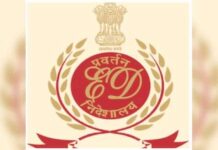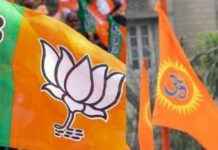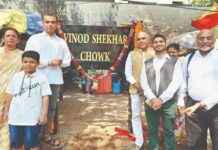Bhagyashri Atram, the daughter of Nationalist Congress Party (NCP) minister Dharamraobaba Atram, made headlines recently when she joined the Sharad Pawar-led NCP (SP), potentially setting the stage for a political showdown with her own father. The move signifies a significant rebellion within the Atram family and has sparked speculation about a potential electoral contest between father and daughter. Bhagyashri is likely to contest from the Aheri constituency in the Maoist-affected Gadchiroli district, the same seat currently held by her father.
The Atram family, known for its influence in state politics, hails from tribal royalty and has a long history of political involvement. Dharamraobaba Atram, a four-time MLA and the state’s food and drugs administration (FDA) minister, has been a prominent figure within the NCP. However, his decision to shift his allegiance to Ajit Pawar during the party split last June has caused a rift within the family, leading to Bhagyashri’s decision to join the NCP (SP).
Bhagyashri’s entry into the NCP (SP) was marked by a significant event attended by state NCP (SP) chief Jayant Patil and senior leader Anil Deshmukh, the former home minister. The gathering was part of the state-wide ‘Shiv Swarajya Yatra’, a campaign launched in anticipation of the upcoming assembly elections. During the rally, Patil explained Bhagyashri’s reasons for joining the party, stating that she had expressed discontent with her father’s decisions and was concerned about the issues facing the constituency despite her father’s position as a minister.
Having been active in politics for over a decade, Bhagyashri is no stranger to the political landscape. She previously served as the president of the Gadchiroli Zilla Parishad in 2011 and contested the 2014 assembly elections from the Gadchiroli constituency on an NCP ticket, albeit unsuccessfully. Her decision to contest from the Aheri constituency in the upcoming elections adds an intriguing dynamic to the political scenario in Maharashtra.
The Atram family drama, reminiscent of other royal family disputes in the region, such as the Kolhapur lineage, has captured the attention of political observers and the public alike. Congress MP Chhatrapati Shahu Maharaj, a descendant of Chhatrapati Shivaji Maharaj, has been embroiled in a bitter conflict with his son, Sambhajiraje Chhatrapati, who recently formed a new party, Swarajya Sangathana, to contest the assembly elections. The parallels between these family disputes highlight the complexities of familial and political loyalties in Maharashtra.
As Maharashtra’s political landscape continues to evolve, the Atram family saga adds an additional layer of intrigue to the upcoming electoral contest. The potential face-off between father and daughter in the Aheri constituency has generated significant interest and speculation among voters and political analysts. Bhagyashri’s decision to challenge her father’s stronghold in the region reflects a growing trend of familial conflicts within political dynasties in the state.
### The Political Dynamics in Maharashtra
Maharashtra, known for its complex political landscape, has been a battleground for various political parties vying for power and influence. The state’s diverse demographics, regional disparities, and historical legacies have shaped its political dynamics, making it a crucial battleground for parties like the NCP (SP) and the BJP. The upcoming assembly elections in Maharashtra are expected to be closely contested, with several key constituencies playing a pivotal role in determining the state’s political future.
### The Atram Family Legacy
The Atram family, with its roots in tribal royalty, has been a prominent political force in Maharashtra for generations. Dharamraobaba Atram’s tenure as a four-time MLA and his role as the state’s FDA minister have solidified the family’s influence in state politics. However, Bhagyashri’s decision to join the NCP (SP) and contest from the Aheri constituency represents a significant departure from her family’s traditional political affiliations.
### The Father-Daughter Face-Off
The potential electoral battle between Dharamraobaba Atram and his daughter Bhagyashri in the Aheri constituency has captured the imagination of voters and political observers alike. The prospect of a father-daughter face-off in a politically significant constituency like Aheri adds an element of drama and intrigue to the upcoming elections. The dynamics of familial loyalty and political ambition are set to play out in full view of the public as the Atram family saga unfolds.
### The Impact on Maharashtra Politics
The Atram family drama is not just a personal conflict but also a reflection of larger political trends in Maharashtra. The shifting loyalties and alliances within political dynasties highlight the complexities of power dynamics and personal ambitions in the state. Bhagyashri’s decision to challenge her father’s authority in the Aheri constituency underscores the changing political landscape in Maharashtra and the evolving nature of political relationships within families.
### Conclusion
The Atram family saga, with Bhagyashri’s decision to join the NCP (SP) and potentially contest against her father in the upcoming elections, has added a new dimension to Maharashtra’s political narrative. The clash of familial loyalties and political ambitions in the Aheri constituency is set to be a closely watched contest that could redefine the state’s political landscape. As Maharashtra gears up for the assembly elections, the Atram family drama serves as a reminder of the intricate interplay between personal relationships and political power in the state’s political arena.




















